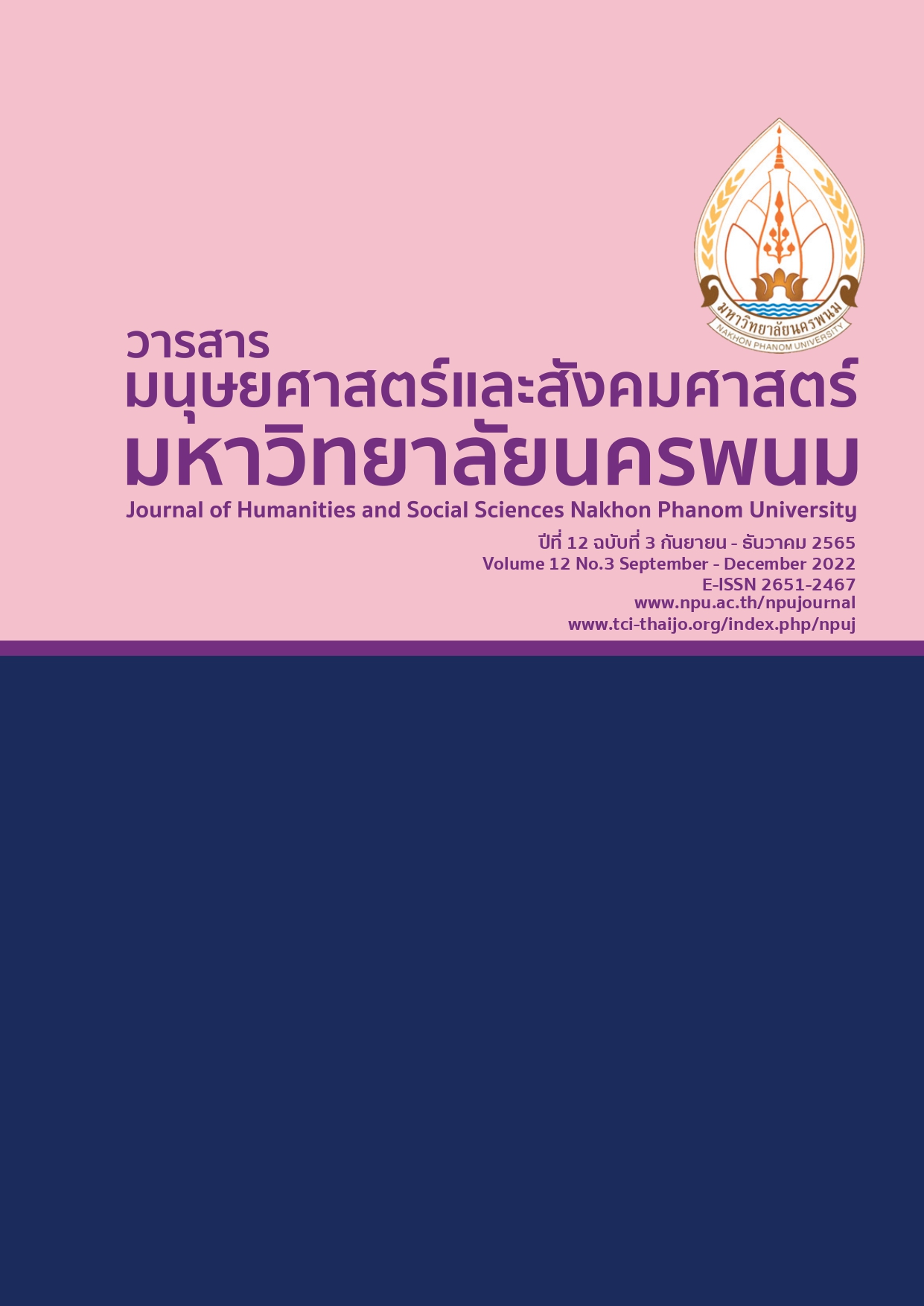A Study of Thai Traditional Medicine for Health Tourism: Thai Traditional Massage, Herbal Steam and Compress in San Pa Tong District, Chiang Mai
Main Article Content
Abstract
This qualitative study aimed to examine Thai traditional medical wisdom to promote health tourism in Chiang Mai. Data was collected from documents and five Thai traditional and local doctors (or folk healers) and five local scholars selected from five potential villages of San Pa Tong District, totaling ten people in semi-structured interviews and focused group discussions by using a purposive technique and a content analysis for the data. The findings revealed that there are four important factors on the Thai traditional medicine wisdom: traditional massage, herbal compress, herbal steam and herbal medicine, of San Pa Tong district that have the potential to promote health tourism. The traditional massage has the potential to satisfy most tourists, followed by herbal compress, and herbal steam, thereby indicating a co-motivating factor in health promotion, Thai identity, and health tourism services that will affect tourists’ satisfaction in the development of sustainable health tourism with limited information both in literature and practice.
Article Details

This work is licensed under a Creative Commons Attribution-NonCommercial-NoDerivatives 4.0 International License.
References
Buranaphap, P. (2010). Khūmư̄ bambat ʻākān pūat mư̄ai dūai tonʻēng [Self traditional massage Manual]. Bangkok: Witthayasatan Publishing. [in Thai]
Corbin, J., and Strauss (2008). Basics of qualitative research. London, England: Sage.
Chen, K.H., Liu, H.H., & Chang, F.H. (2013). Essential customer service factors and the segmentation for older visitors within wellness tourism based on hot springs hotels. International Journal of Hospitality Management, 35, 122-132. http://dx.doi.org/10.1016/j.ijhm.2013.05.013.
Creswell, J. W. (2009). Research design: Qualitative, quantitative, and mixed methods approaches (3rd ed.). Los Angeles: Sage
Heung, V.S., & Kucukusta, D. (2013). Wellness tourism in China: Resources, development and marketing. International Journal of Tourism Research, 15, 346-359.
Hjalager, A.M., Konu, H., Huijbens, E.H., Bjork, P., Nordin, S., Tuohino, A. (2011). Innovating and re-branding Nordic wellbeing tourism (Final reporta joint NICE research project). Retrieved from www. Nordic -innovation.org/Global/_Publications/Reports/2001/2001_NordicWellbeingTourism_report.pdf.
Kemperman, A. (2021). A review of research into discrete choice experiments in tourism: Launching the Annals of Tourism Research curated collection on discrete choice experiments in tourism. Annals of Tourism Research, 87,103137. doi.org/10.1016/j.annals.2020.103137.
Khieosanuk, C. (2011). Nǣokhit chœ̄ng pratyā nai kān raksā bǣp phǣt phư̄nbān lānnā dōi withīkān tō̜k sēn [Philosophical concepts of local Lanna hammer massage healing (Unpublished master’s Independent study)]. Chiang Mai University, Thailand.
Lee, C.G. (2010). Health care and tourism: Evidence from Singapore. Tourism Management, 31, 486-488. doi.:10.1016/j.tourman.2008.04.011.
Page, S.J. (2008). Current issue in tourism: the evolution of travel tourism research; a new research agenda for tourism? Tourism Management. doi:10.1016/j.tourman.2008.04.011.
Peris-Ortiz, M., & Alvarez-Garcia, J. (2014). Health and wellness tourism. Emergence of a new market segment. NY: Springer.
Prasith-rathsint, S. (2010). Philosophy of social sciences. Bangkok, Thailand: Threelada Ltd.
Ryan, C. (1995). Researching tourist satisfaction: Issues, concepts, problems. London, England: Routledge.
Schalber, C., & Peters, M. (2012). Determinants of health tourism competitiveness: An Alpine case study. Tourism: An International Journal, 3, 307-323.
Sitthisantikun, C. (2014). Krabūankān čhatkān khwāmrū dān kānthō̜ngthīeo chœ̄ng sukkhaphāp bān mǣ kham pō̜ng ʻamphœ̄ mǣʻō̜n čhangwat Chīang Mai. [Knowledge management process of health tourism in Mae Kham-on district, Chiang Mai Province (Unpublished master’s Independent study)]. Chiang Mai University, Thailand.
Techawatnan, N. (2013). Kān wikhro̜ sakkayaphāp thurakit kānthō̜ngthīeo chœ̄ng sukkhaphāp nai čhangwat Chīang Mai [Analysis of potential business health tourism in Chiang Mai (Unpublished master’s Independent study)]. Chiang Mai University, Thailand.
Thal, K.R., & Hudson, S. (2019). A conceptual model of wellness destination characteristics that contribute to psychological well-being. Journal of Hospitality and Tourism Research, 43(1), 41-57.
Traisisin, A. (2008). Phūmpanyā phư̄nbān kān nūat bǣp tō̜k sēn [Local wisdom of Thai traditional hammer massage for oneself (Unpublished master’s Independent study)]. Chiang Mai University, Thailand.
UNWTO (2020). The UNWTO recommendations on tourism and rural development: A guide to making tourism an effective tool for rural development. Retrieved from https://www.e-unwto.org/doi/epdf /10.18111/9789284422173.


